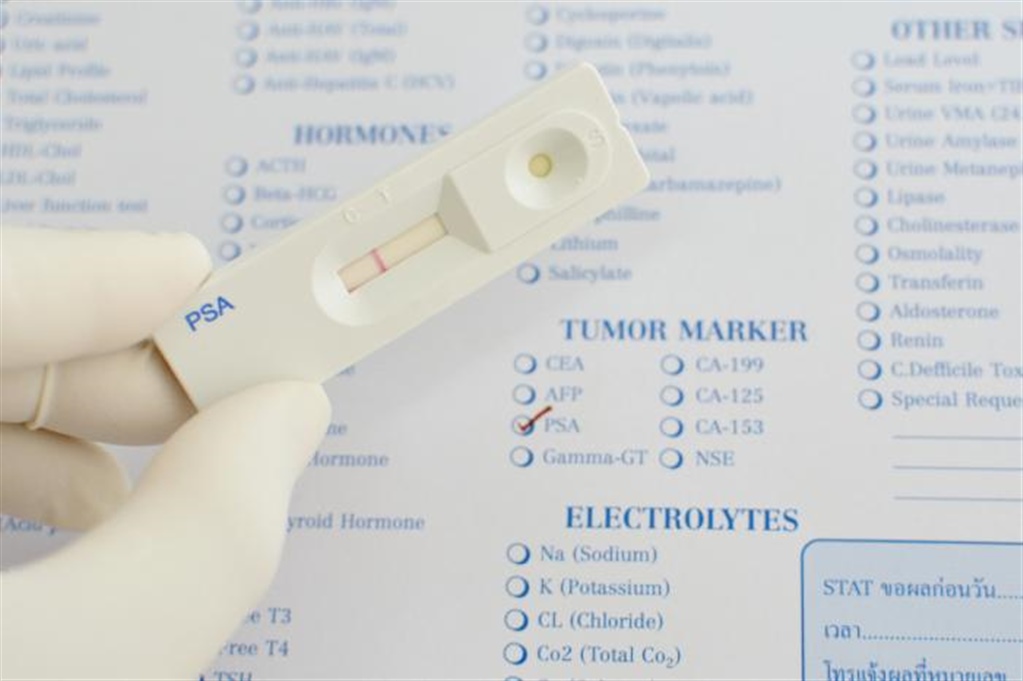Routine prostate cancer screening

Recommendations for prostate screening vary. For example, the US Preventive Services Task Force recommend that men should only be screened for prostate cancer if they have symptoms.
However, the American Cancer Society recommend that men aged 50, who are at average risk of prostate cancer and are expected to live 10 years or more, should talk to their doctor about prostate cancer screening.
There is also no organized prostate cancer screening in England, but there is a Prostate Cancer Risk Management Programme. This aims to ensure men who are worried about their risk of prostate cancer receive enough information to decide whether they should have a PSA test.
Routine PSA testing reduced prostate cancer deaths by 21% over 13 years
In 1993, the European Randomised study of Screening of Prostate Cancer (ERSPC) was launched in order to see whether routine PSA testing for men would reduce the number of deaths from prostate cancer.
The study - long-term results of which have recently been published in The Lancet - involved more than 162,000 men aged 50-74 from eight countries; France, Finland, Belgium, Italy, the Netherlands, Spain, Sweden and Switzerland.
Fast facts about prostate cancer in the US
Around 233,000 new cases of prostate cancer will be diagnosed in the US this year
Behind skin cancer, prostate cancer is the most common cancer in American men
The majority of men diagnosed with prostate cancer do not die from it. More than 2.5 million American men who have been diagnosed with the cancer at some point are alive today.
Every 4 years, the men were randomized to receive either PSA screening or no screening. This occurred every 2 years for men from Sweden. If men who received screening had a PSA concentration higher than 3.0 ng/ml, they were referred to have a biopsy.
During the 13-year follow-up, 7,408 cases of prostate cancer were diagnosed in men who underwent PSA testing, while 6,107 cases were found in men who received no screening.
After 9 years, results of the study revealed that prostate cancer screening appeared to reduce the number of prostate cancer deaths by 15%. At 11 years after study baseline, screening seemed to reduce the number of prostate cancer deaths by 22%. After this point, no further reduction in prostate cancer deaths was seen as a result of screening.
Overall, the number of prostate cancer deaths reduced by 21% among men who were screened, compared with those who had no screening. Furthermore, men who were screened had a lower risk of advanced prostate cancer and a 27% lower risk of dying from prostate cancer.
In addition, the researchers found that the absolute benefit of prostate cancer screening rose steadily during the follow-up. After 9 years, 1,410 men needed to undergo screening in order to prevent one prostate cancer death. This reduced to 781 after 13 years.
However, the American Cancer Society recommend that men aged 50, who are at average risk of prostate cancer and are expected to live 10 years or more, should talk to their doctor about prostate cancer screening.
There is also no organized prostate cancer screening in England, but there is a Prostate Cancer Risk Management Programme. This aims to ensure men who are worried about their risk of prostate cancer receive enough information to decide whether they should have a PSA test.
Routine PSA testing reduced prostate cancer deaths by 21% over 13 years
In 1993, the European Randomised study of Screening of Prostate Cancer (ERSPC) was launched in order to see whether routine PSA testing for men would reduce the number of deaths from prostate cancer.
The study - long-term results of which have recently been published in The Lancet - involved more than 162,000 men aged 50-74 from eight countries; France, Finland, Belgium, Italy, the Netherlands, Spain, Sweden and Switzerland.
Fast facts about prostate cancer in the US
Around 233,000 new cases of prostate cancer will be diagnosed in the US this year
Behind skin cancer, prostate cancer is the most common cancer in American men
The majority of men diagnosed with prostate cancer do not die from it. More than 2.5 million American men who have been diagnosed with the cancer at some point are alive today.
Every 4 years, the men were randomized to receive either PSA screening or no screening. This occurred every 2 years for men from Sweden. If men who received screening had a PSA concentration higher than 3.0 ng/ml, they were referred to have a biopsy.
During the 13-year follow-up, 7,408 cases of prostate cancer were diagnosed in men who underwent PSA testing, while 6,107 cases were found in men who received no screening.
After 9 years, results of the study revealed that prostate cancer screening appeared to reduce the number of prostate cancer deaths by 15%. At 11 years after study baseline, screening seemed to reduce the number of prostate cancer deaths by 22%. After this point, no further reduction in prostate cancer deaths was seen as a result of screening.
Overall, the number of prostate cancer deaths reduced by 21% among men who were screened, compared with those who had no screening. Furthermore, men who were screened had a lower risk of advanced prostate cancer and a 27% lower risk of dying from prostate cancer.
In addition, the researchers found that the absolute benefit of prostate cancer screening rose steadily during the follow-up. After 9 years, 1,410 men needed to undergo screening in order to prevent one prostate cancer death. This reduced to 781 after 13 years.
Comments
Latest news

Every man desires to live long, but no man would be old.
Jonathan Swift, 1667-1745

A healthy outside starts from the inside.
Robert Urich

Take care of your body. It’s the only place you have to live.
John Rohn

The greatest medicine of all is to teach people how not to need it.

It is more important to know what sort of person has a disease than what sort of disease a person has.
Hippocrates

The modern medicine focuses on health and prevention rather than illness and intervention.

Add life to your years to add years to your life.

Yes, I am trying to eat healthy. No, I am not on a diet.

First newsletter: Benefits of dark chocolate.
Join our newsletter